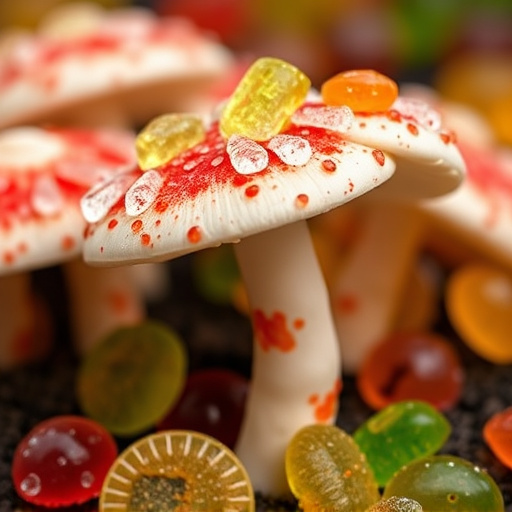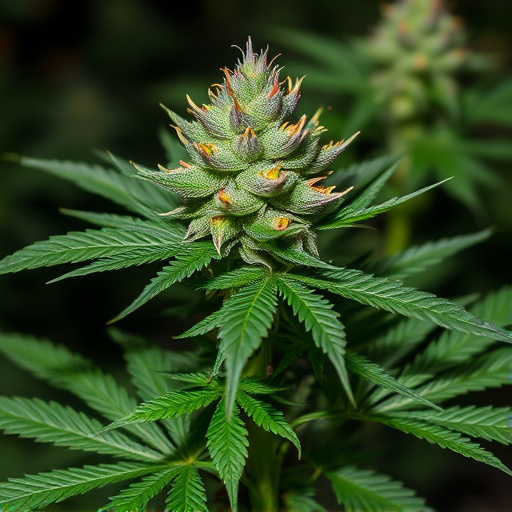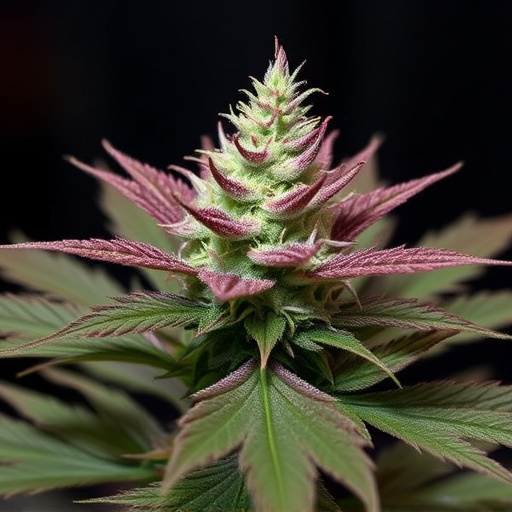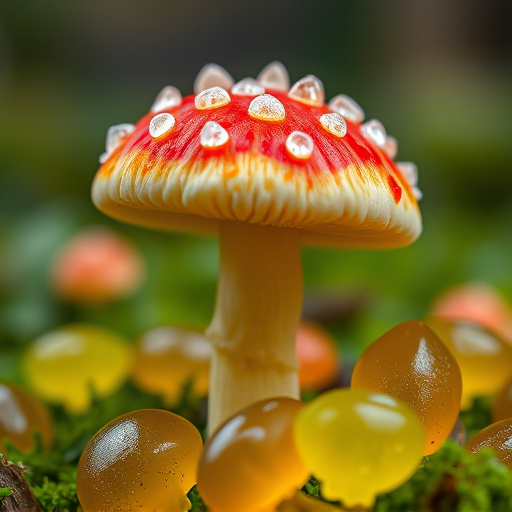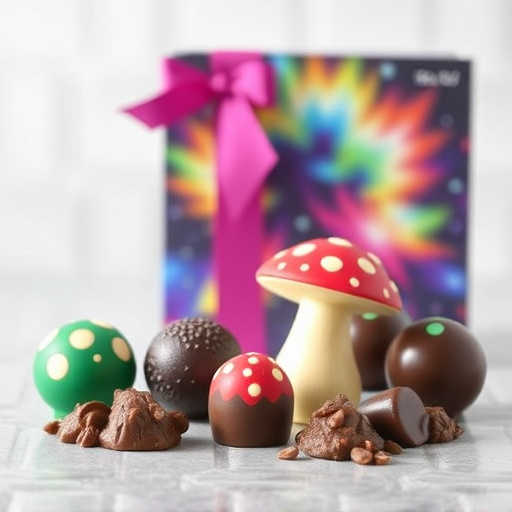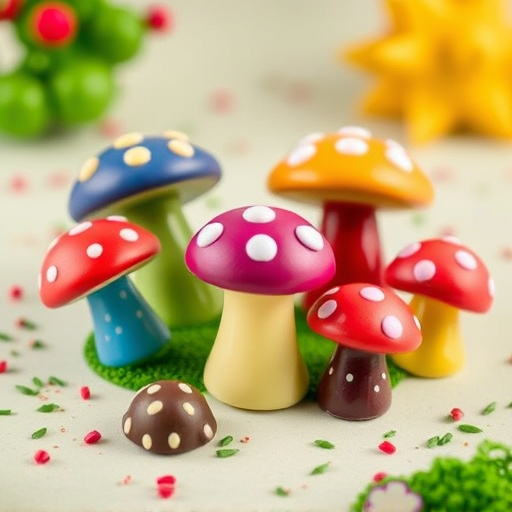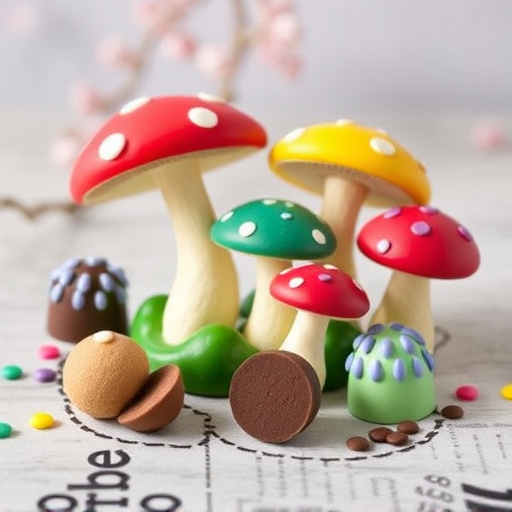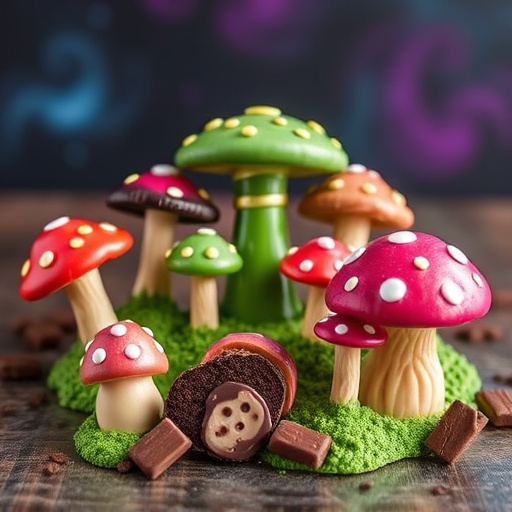The Legal Status of Magic Mushroom Chocolates is a globally debated topic, reflecting the complex landscape of psychedelic substances. While many countries ban psilocybin mushrooms due to misuse concerns, there's a growing trend towards decriminalization and legalization for medical purposes. This has sparked interest in edible forms like chocolates, leading to varied regulations worldwide. Some regions have implemented safety measures like strict labeling and age restrictions, acknowledging the potential therapeutic benefits of psilocybin for mental health treatments. However, regulatory gaps and public perceptions create challenges, with illicit "magic mushroom chocolates" proliferating through loopholes and sophisticated packaging, posing risks to unsuspecting consumers.
“The rise of magic mushroom chocolates has sparked both intrigue and concern in recent years, as this experimental food product navigates a complex legal landscape. With varying regulations worldwide, understanding the current legal status of magic mushroom chocolates is crucial for consumers and businesses alike. This article delves into the intricate web of rules governing these psychedelic treats, exploring customer guarantees, and envisioning a future with potential legalization. By examining best practices and proposed strategies, we aim to provide insights into consumer protection and market regulation in this burgeoning industry.”
- The Legal Landscape of Magic Mushroom Chocolates
- – Exploring the current legal status and regulatory frameworks surrounding psychedelic chocolates in various jurisdictions.
- – Discussing the challenges and loopholes that have allowed for their sale and distribution.
The Legal Landscape of Magic Mushroom Chocolates

The legal landscape surrounding magic mushroom chocolates is complex and varies significantly from one region to another. In many countries, the sale and consumption of psilocybin mushrooms (the active ingredient in “magic” mushrooms) are strictly regulated or outright banned due to their potential for misuse and psychological effects. However, there’s a growing trend towards decriminalization and legalization for medical and research purposes.
This shift has led to an increased interest in products like magic mushroom chocolates, which combine the therapeutic potential of psilocybin with the convenience of edible forms. Some jurisdictions have specifically addressed these novel products through legislation or regulatory guidelines, ensuring consumer safety and quality control while also recognizing the benefits of psilocybin for mental health treatments. The Legal Status of Magic Mushroom Chocolates is evolving, reflecting a global dialogue about the balance between public safety and individual autonomy in the context of psychedelic substances.
– Exploring the current legal status and regulatory frameworks surrounding psychedelic chocolates in various jurisdictions.
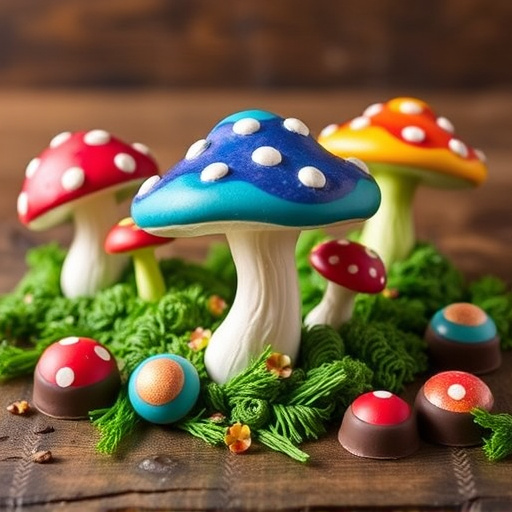
The legal status of magic mushroom chocolates varies dramatically across different countries and states, reflecting a complex interplay between evolving public perception, scientific research, and regulatory concerns. In some regions, psilocybin-containing edibles like chocolate are explicitly illegal due to their psychedelic properties, classified alongside other controlled substances. These restrictions often stem from historical stigmatization and lack of comprehensive research into the therapeutic potential of psychedelics. Conversely, certain jurisdictions have taken strides towards decriminalization or even legalization, recognizing the promising results of clinical trials investigating psilocybin’s efficacy in treating mental health conditions such as depression and anxiety.
Regulatory frameworks governing magic mushroom chocolates typically involve stringent labeling requirements, dosage caps, and age restrictions to mitigate potential risks. Even in areas where personal use is tolerated, commercial production and sale remain heavily regulated to ensure product safety and prevent misuse. As the body of scientific evidence supporting psychedelic therapy continues to grow, so does the global dialogue surrounding their legal status. This ongoing discourse underscores the dynamic nature of the legal landscape for magic mushroom chocolates, shaping consumer access and expectations in an evolving regulatory environment.
– Discussing the challenges and loopholes that have allowed for their sale and distribution.

The legal status of magic mushroom chocolates is a complex and evolving landscape, largely shaped by conflicting societal perceptions and regulatory loopholes. While some countries have strictly outlawed psilocybin-containing products due to their mind-altering properties, creative distribution methods and changing public attitudes have led to a growing market for these ‘chocolates’ in other regions. One significant challenge lies in the difficulty of enforcement; identifying and differentiating between legal edible treats and illicitly produced magic mushroom chocolates proves tricky, especially as manufacturers employ innovative packaging and branding strategies.
Loopholes in legislation, such as classifying psilocybin-infused candies as dietary supplements or novelty items, have facilitated their sale online and in certain retail outlets. This has led to a proliferation of products that skirt around traditional drug control measures. As a result, consumers face the risk of purchasing unsafe or mislabeled products, emphasizing the need for robust regulation and clear consumer education regarding the legal status of magic mushroom chocolates.
In light of the evolving legal status of magic mushroom chocolates globally, it’s clear that navigating the current regulatory landscape is a complex endeavor. While innovative brands are pushing boundaries, consumers must be aware of potential risks and loopholes. A strong customer guarantee can offer some protection, but staying informed about local laws remains paramount. As regulations continue to develop, the future of psychedelic chocolates in the marketplace looks uncertain, yet promising.
